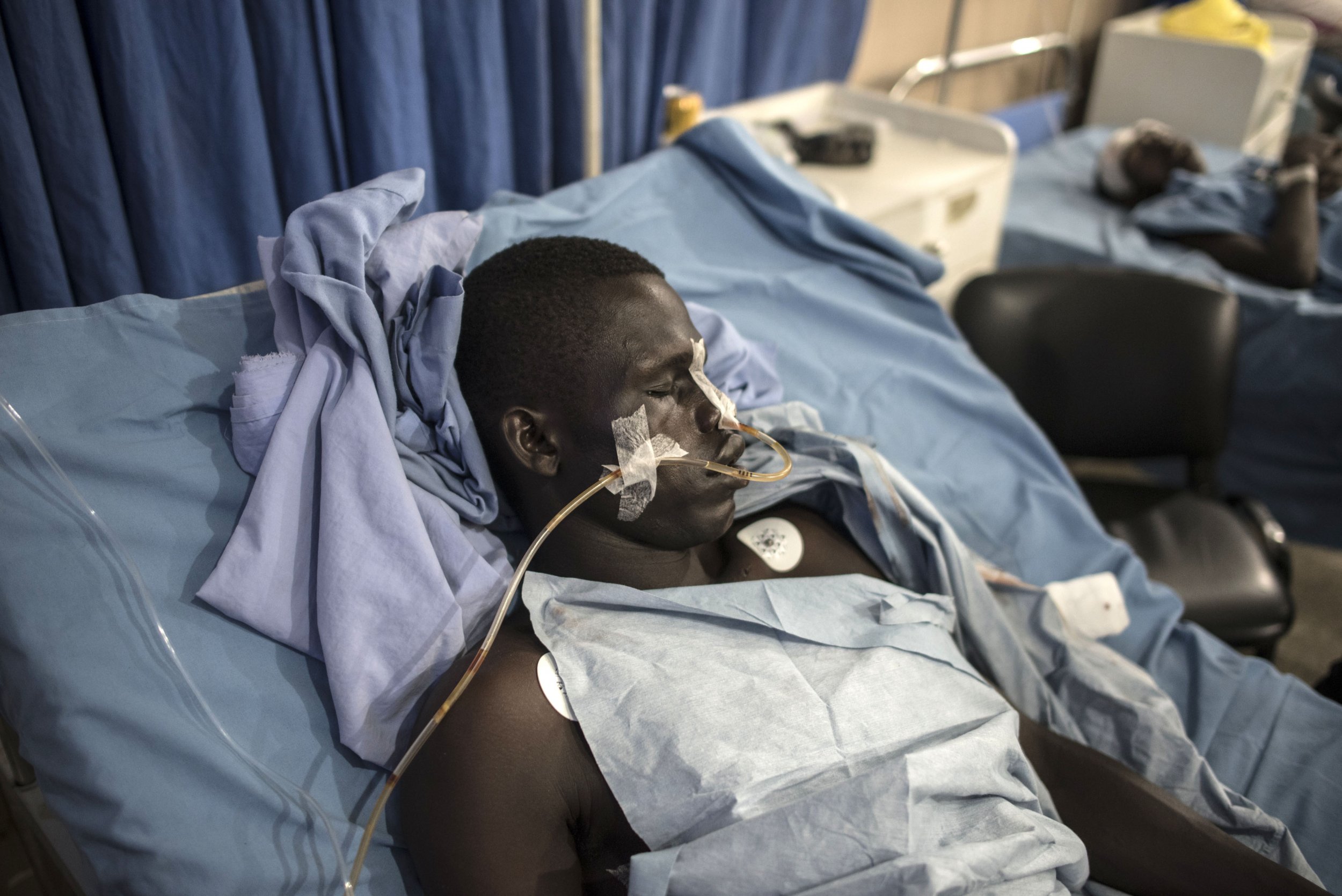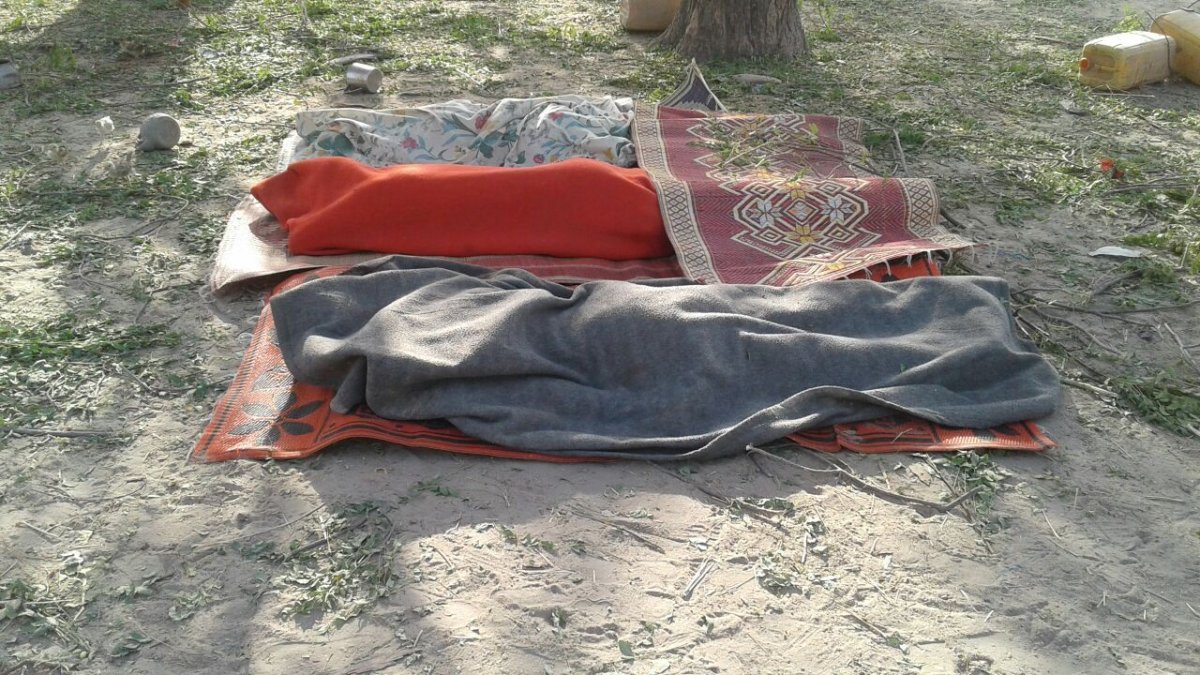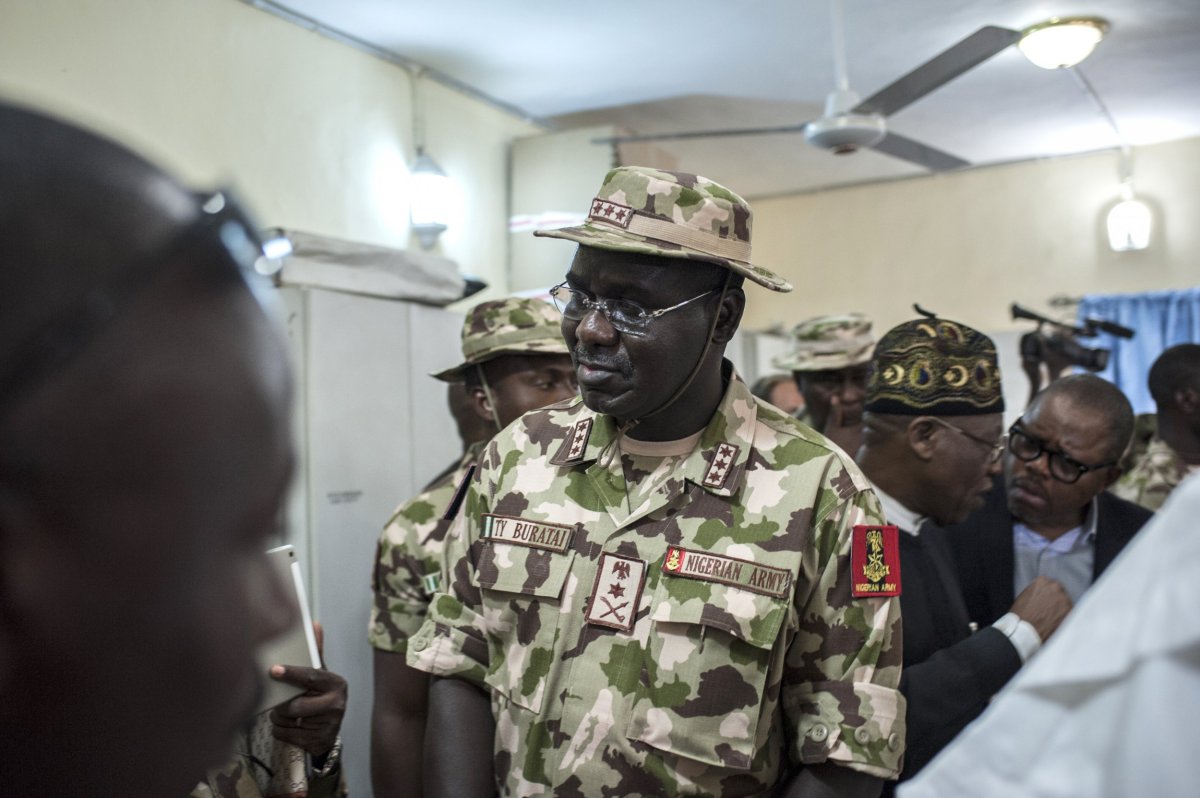
It was around noon on January 17 when the Nigerian Air Force dropped two bombs on the remote settlement of Rann, close to the border with Cameroon and an area hotly contested by the military and Boko Haram, the Islamist militant group.
Alfred Davies, an aid worker for Médecins Sans Frontières (MSF), tells Newsweek that he and his colleagues were distributing items—including soap and sleeping mats—to internally displaced persons (IDPs) in the settlement in Nigeria's northeastern Borno state. They were also testing mothers and infants for malnutrition and vaccinating children against measles in the isolated town.
Rann is closer to the Chadian capital N'Djamena than the state capital Maiduguri, the kind of place where Boko Haram has thrived during its eight-year insurgency. Since the militant group took up arms in 2009, it has targeted Kala Balge—the local government area in which Rann is located—multiple times. Boko Haram attempted to launch an attack on Rann two days after the mistaken airstrikes but were repulsed, according to the military. The town has changed hands between the militants and Nigerian military control, and humanitarian agencies have been frequently unable to reach its debilitated residents due to flooding and poor road conditions.
Just before the airstrike, Davies recalls vaccinating two young children and giving their mother a blanket. "I remember them so well because the children are twins, and their mother had smiled and thanked me," he says. Now, though, Davies is left with a different memory of the family. "The image I can't get out of my mind is the dead mother, lying on the floor between her two young children, who were touching her and crying," he says.

The full details of what happened in Rann are not yet known. Nigerian President Muhammadu Buhari expressed his regret at the incident and sent a delegation to Maiduguri (which he was not part of, causing dismay among some Nigerians). The air force immediately took responsibility for what it called an "accidental air strike" and has commissioned a six-person board to investigate the incident; the board is due to report by February 2.
Even though the air force took responsibility, the consequences of Nigeria's worst friendly fire incident in operations against Boko Haram continue to grow. The death toll is still rising: A local government official in Kala Balge put the death toll at 115 on Tuesday, more than double the original estimates by aid groups. And, according to activists and aid workers, a lasting consequence of the misdirected airstrikes could be the severance of an already fragile trust between the Nigerian military and the civilian population as the former conducts a final push against Boko Haram.
The Islamist militant group has displaced more than 2 million people in Nigeria's northeast over the course of its insurgency. The vast majority of these are not accommodated in official, demarcated camps, but are taken in by host communities. This is the case in Rann, where hundreds of tents occupied by IDPs intermingle with residential buildings. Aid workers put the number of displaced persons sheltering in Rann at between 20,000 and 40,000, according to the BBC. Satellite imagery released by Human Rights Watch (HRW) also appears to show a sizeable military compound on the edge of Rann, just 100 meters from the impact site of one of the airstrikes.
Davies, the MSF aid worker, says that the remote location of Rann made treating victims at the scene difficult. "We used what limited resources we had to save people's lives. But we didn't have enough medical supplies at that point—we were out of bandages, gloves and sutures," says Davies. He describes graphic casualties in the aftermath of the bombs: children's bodies cut in half by the impact, and wounded persons with their intestines exposed. "There were dead bodies everywhere, wounded everywhere, bodies being carried to the cemetery. In our medical tent, my team and I were struggling to save as many lives as possible, but 10 people still died there," says Davies.
A week after the airstrikes, hospitals in Borno are still overstretched in trying to treat the victims. Apollo Barasa, project manager at the State Specialist Hospital in Maiduguri, says some of the 68 patients evacuated from Rann to the hospital are being accommodated in alternative wards as "we have exhausted the surgical space in the hospital." Barasa, an International Committee of the Red Cross (ICRC) delegate, also says that many of the children being treated at the hospital—the youngest of which is seven months old—have been separated from their parents or were orphaned by the airstrikes. "It was a pathetic situation; you could see fear and shock in these patients," says Barasa.
According to the government, Nigeria is entering its endgame against Boko Haram. The military periodically broadcasts triumphal messages that the militant group is on the verge of eradication; Buhari told a security conference in Senegal in December 2016 that Boko Haram was "done for" as a fighting force, despite the group being responsible for the deaths of hundreds of Nigerians in 2016. Assisted by a regional task force, Nigeria has reclaimed the majority of the territory once controlled by Boko Haram, which was equivalent to the size of Belgium at the group's peak in early 2015. The group has also been hit by infighting: following its pledge of allegiance to the Islamic State militant group (ISIS) in 2015, Boko Haram fractured in 2016 after longtime leader Abubakar Shekau rejected the appointment, by ISIS, of a new head of the Nigerian group.
The military's claim that only pockets of Boko Haram fighters remain in northeast Nigeria, and its own base in Rann, makes the use of airstrikes—rather than a method with less chance of collateral damage—all the more difficult to understand, says Mausi Segun, HRW's Nigeria researcher. "There's so much that is unclear," says Segun. "We're not military people, we can't determine for them what type of attack or response they should have to Boko Haram attacks, but international law is quite clear about taking steps to minimize harm to civilians."

Speaking immediately after the attack, Major General Lucky Irabor, the commander of the counterinsurgency operation, told the AP that he ordered the mission based on intelligence that militants were coalescing in Rann. Irabor said he even provided geographical coordinates for the strikes. Newsweek tried to contact Nigeria's defense spokesman, Rabe Abubakar, regarding the strikes but received no comment.
For a civilian population battered by years of draining conflict, friendly fire incidents such as those at Rann endanger whatever trust the armed forces have earned. Rights groups have criticized the conduct of Nigeria's military during the insurgency. Amnesty International has accused the military of executing hundreds of detainees suspected of being part of Boko Haram without trial and allowing other suspects to die in squalid custody, something the military has denied. Local populations have played a key role in countering Boko Haram—some have joined armed vigilante groups sponsored by the government, while others provide valuable intelligence—and losing this support at a critical stage of the insurgency could afford the militants space to regroup.
While the Nigerian military's quick assumption of responsibility for the airstrikes was welcomed by aid groups and activists, it is not clear this will be enough to restore civilian trust. "I don't understand why this happened, and the people in Rann don't understand either," says Davies. "They are living in bad conditions, and they understand this is because of the war. But to be bombed by the Nigerian military itself—which is supposed to be protecting them—has plunged them into deep despair."
Uncommon Knowledge
Newsweek is committed to challenging conventional wisdom and finding connections in the search for common ground.
Newsweek is committed to challenging conventional wisdom and finding connections in the search for common ground.
About the writer
Conor is a staff writer for Newsweek covering Africa, with a focus on Nigeria, security and conflict.
To read how Newsweek uses AI as a newsroom tool, Click here.








